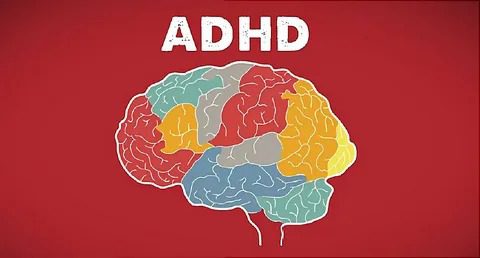Since people with Attention Deficit Hyperactivity Disorder (ADHD) frequently find it difficult to control their emotions, emotional regulation is a crucial ability for them to have. ADHD is a neurodevelopmental disease marked by impulsivity, hyperactivity, and trouble paying attention. Those with ADHD frequently experience emotional dysregulation, which can be problematic for their general well-being, ability to function in school or the workplace, and interpersonal connections. This article will examine the connection between emotional regulation and ADHD as well as coping mechanisms that can be used to improve emotional control in people with ADHD.
Comprehending Emotional Dysregulation and ADHD
Overview of ADHD: Both children and adults can be impacted by Attention Deficit Hyperactivity Disorder (ADHD), a neurodevelopmental condition. It is characterized by impulsivity, hyperactivity, and inattentional symptoms that can seriously impair day-to-day functioning.
ADHD and Emotional Dysregulation:
Emotional dysregulation is the inability to regulate and express emotions in a healthy way. Elevated emotional responses, mood swings, and trouble controlling impatience, rage, or disappointment are common symptoms of ADHD in individuals.
Emotional Dysregulation’s Effects
Interpersonal Relationships: People with ADHD may find it difficult to control their reactions in social circumstances, which can lead to emotional dysregulation and pressure in interpersonal relationships. Conflicts, miscommunications, and trouble sustaining friendships or love relationships might result from this.
Academic or Professional Performance:
Academic or professional performance can also be impacted by emotional dysregulation. When faced with strong emotions, people with ADHD may find it difficult to focus or stay concentrated, which makes it difficult for them to finish work or meet deadlines.
General Well-Being:
Mental and general health can be significantly impacted by long-term emotional dysregulation. For those with ADHD, it may be a factor in elevated stress, anxiety, sadness, and low self-esteem.
Coping Mechanisms for Emotional Control
Mindfulness and Relaxation Techniques: People with ADHD may find it easier to control their emotions and quiet their brains by practicing mindfulness and relaxation techniques. Relaxation techniques that lower emotional arousal include progressive muscle relaxation, deep breathing exercises, and guided visualization.
Gaining Emotional Awareness:
Gaining emotional awareness is being able to identify and recognize one’s own emotions as well as comprehend what causes them. Learning to identify and categorize their emotions, as well as how they impact their thoughts and actions, can be helpful for those with ADHD.
Putting Coping Skills into Practice:
Coping with emotional dysregulation requires coping skill instruction. This could involve stress reduction methods, cognitive restructuring, assertiveness training, and problem-solving abilities. These abilities enable people with ADHD to control their emotions and deal with difficult situations.
Creating a Structured atmosphere:
Improving emotional regulation in people with ADHD can be facilitated by creating a structured atmosphere that makes them feel more in control and organized. This include adhering to regular timetables, establishing precise expectations, and posting schedules or reminders in plain sight.
Seeking Professional Assistance:
For those with ADHD who struggle with emotional dysregulation, professional assistance from therapists, counselors, or psychologists can be quite helpful. Therapy can offer a secure environment in which to investigate and resolve underlying emotional problems, acquire coping mechanisms, and create efficient emotional management plans.
Medication Management:
Medication may occasionally be recommended to assist treat emotional dysregulation, one of the symptoms of ADHD. Amphetamines and methylphenidate are examples of stimulant drugs that might help with impulse control and attention, which may indirectly enhance emotional regulation.
Physical Activity and a Healthy Lifestyle:
Having a healthy lifestyle and participating in regular physical activity can help with emotional regulation. Exercise helps people relax and reduce stress by releasing endorphins, which are naturally occurring mood enhancers.
Creating Customized Coping Mechanisms
Assisting persons with ADHD in Identifying Triggers: Assist persons with ADHD in identifying their emotional triggers, which may include particular people, situations, or internal ideas and beliefs. Identifying these triggers can aid in the creation of individualized coping mechanisms.
Trial and Error:
It’s important to understand that coping mechanisms can differ from person to person and that figuring out which ones each person responds to best may require some trial and error. Encourage experimenting with various methods and approaches to see which works best.
Practice and Repetition:
To become more skilled at emotional control, just like any other skill, practice and repetition are necessary. In order to develop resilience and improve their ability to regulate their emotions, encourage people with ADHD to practice coping mechanisms on a daily basis, even when they are not feeling very strong emotions.
In summary
For people with ADHD, emotional dysregulation is a typical problem, but it is possible to control emotions more skillfully with the correct coping mechanisms and assistance. People with ADHD can improve their emotional regulation skills and overall well-being by learning how emotional regulation and ADHD are related, putting coping skills like mindfulness and relaxation techniques into practice, growing in emotional awareness, setting up a structured environment, getting professional help when necessary, and creating customized coping strategies. Keep in mind that improvement could take some time, so using these coping mechanisms will require patience and perseverance.


